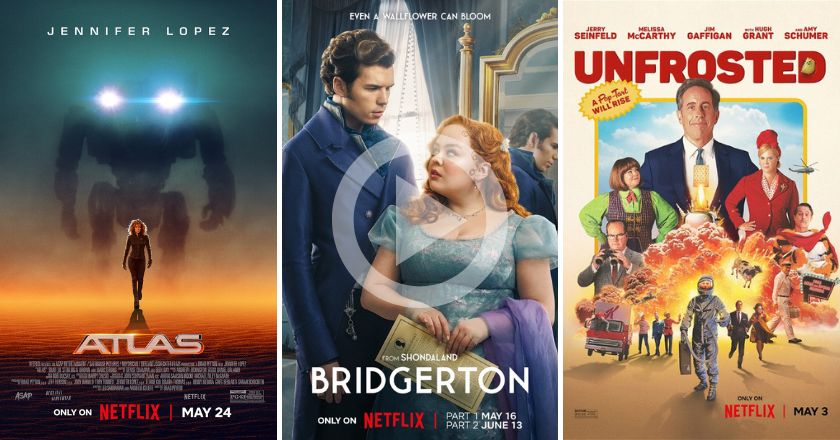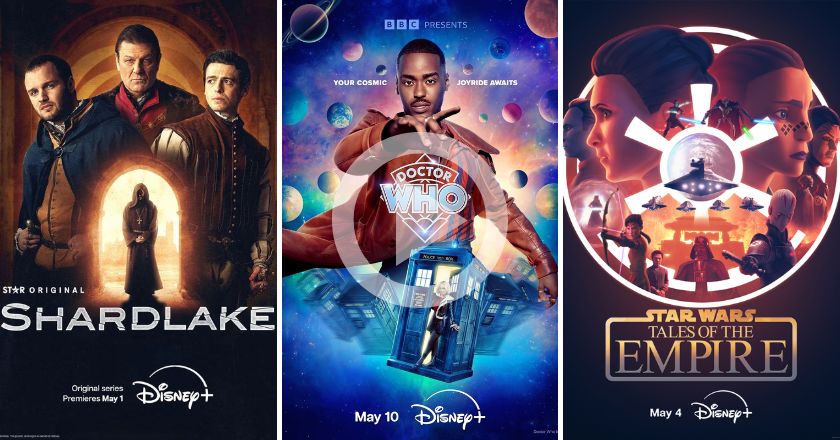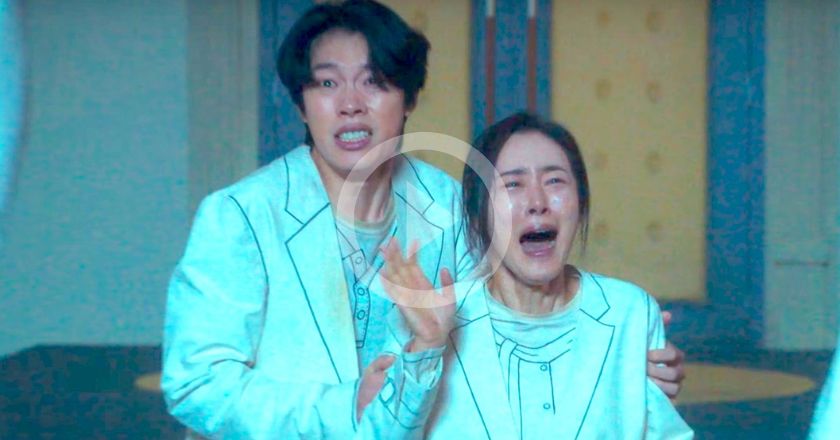Written by Zac Platt.

More often than not, biopics bog themselves down giving all the historical dot points of their subject’s lives rather than putting forth an interesting character study. For that reason I find myself more intrigued when a biography focuses on a specific event or on the people that surround the subject, giving us a sense of who they are but not boring us in the minutia of their life story. To its credit, The Invisible Woman does this well, presenting an exploration of Charles Dickens through the eyes of his mistress Nelly Ternan. While this perspective of the beloved novelist proves key in giving The Invisible Woman its dramatic flair, the film unfortunately still succumbs to getting a little too caught up in the setting while presenting unsympathetic and generally uninteresting characters.
Based on the Claire Tomalin’s book The Invisible Woman: The Story of Nelly Ternan and Charles Dickens, the film follows Ternan (Felicity Jones) as a young schoolteacher looking back on her secret relationship with Dickens (Ralph Fiennes, who also directed). At 18 Nelly catches the eye of the 45 year old Dickens, then married with children a ‘plenty. Naïve at first, she sees his interest in her as something akin to a supportive mentor, but soon his intentions become clear and he sets about courting her and separating from his wife of 22 years. Unwilling to face up to the scandal of leaving his wife to live in sin with some young woman, he keeps her and their relationship a secret for over a decade until his eventual death.
There is certainly an inherent tragedy in this story, but, as is often the case with historical drama, we spend too much time being told what happened and not letting the story and emotions speak for themselves. Much of the time Abi Morgan’s screenplay moves back and forth from being either dry and expositional, or indulgent and grand. While mostly these states blend together and make the film feel rather flat, there are moments the flowery language and musings do hit the right note to bring the audience back in. Dickens first confessing his love with the line, “Ellen Lawless Ternan. That is my secret,” is one of a handful of beautiful pieces of dialogue The Invisible Woman enjoys that all too briefly tease at a heart the film is largely lacking.

Those wonderfully written lines aside, there just isn’t enough about Ternan and Dickens’ relationship to get you invested. The warm moments between them are so few and so early that you can’t help but wonder why they are bothering. From the moment his intentions become clear there is a coldness in their interactions that never really goes away, making the anguish their affair puts them through an avoidable annoyance for the viewer rather than a tragic story of secret love. I’m hesitant to blame the actors as they both deliver strong performances here (although their chemistry could probably be better), rather it seems to go back to focus on Morgan’s script. In the shuffle of his poetic dialogue and historical accuracy, characterisation is forgotten and we are left a cast with little to no personality past the first act.
At times the film seems as to be rebelling against the period’s conservative mindset, making Ternan and Dickens’ a forbidden love. But because Ternan herself is shown as being just as ignorant and judgemental toward others with less conventional relationships, she is instead made a hypocrite who, without a moment of revelation, is therefore unable to elicit audience empathy. Though Ternan’s emotions are rather stoic for most of the film, Jones’ delivery paints a more rendered picture of the woman as she injects a subtle yet growing resentment and acceptance of the life she has chosen. Of course, there are some rare moments where Ternan’s heartache gets the better of her (especially early in the film) and Jones is opportune a more obvious display of her talent.
Dickens as well is made to look a less than lovable character, though the target on his back feels more intentional than it did with Ternan. Fiennes’ charm and earnest smile immediately disarm both Ternan and the viewer, begging us to view Dickens in the romantic light his celebrity affords him. With a subtle shift in Fiennes’ manner, he goes from excitable and in love to overbearing and obsessive, quickly revealing his selfish nature. His transformation is muted and ominous, but again it just comes too early and we are again left without anything else to say.

The thrux of the film is Dickens’ unwillingness to sacrifice any of his fame or public adoration for the people, or more specifically the women, he loves. Ternan immediately resents Dickens’ once she learns of his romantic intentions, but still she goes along with it even as he eventually locks her away from the public eye, somewhere he can visit whenever convenient. By never making the relationship one worth caring about, the film is fundamentally flawed by the unreasonable expectation of the audience to care for characters needlessly putting themselves through a miserable situation.
There is however one character the viewer can empathises with: Dickens’ wife Catherine (Joanna Scanlan). Given more material in her few scenes than the rest of the cast in the entire film, she quickly becomes the most sympathetic and well-rounded character in film. But just as Dickens cast her aside for something young and pretty, the film quickly moves on from Catherine to a more hollow and superficial story. In the end The Invisible Woman is a film that, despite its strong performances, is little more than its concept. A love story largely devoid of heart that reduces a potentially rich discussion of a historical figure and complex relationships to ‘Hey, did you know Dickens had a mistress?’
THE REEL SCORE: 6/10
– Z.P.







